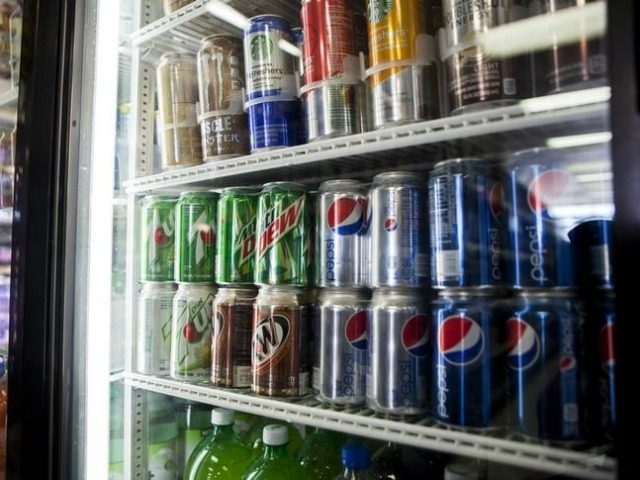Connecticut Democrat Rep. Rosa DeLauro is hailing Philadelphia’s new soda tax and urging Congress to pass her own bill that would create a one-cent tax on every teaspoon of sugar or high-fructose corn syrup.
DeLauro discussed her legislation in the video below:
“Congress should follow Philadelphia’s lead and enact the SWEET Act, which would reduce the human and economic costs of health conditions related to these beverages,” DeLauro said in a press statement this week. “And while we continue to pressure Congress to act, more cities should step up and lead on this critical issue. At a time when one-in-three children and adolescents are overweight or obese, with the numbers even worse for adults, we must take action.”
Philadelphia is the second large U.S. city to tax soda and follows Chicago – which has a three percent tax on retail soda sales and a separate tax on fountain beverages. Associated Press (AP) reports that Philadelphia will have a 1.5-cent-per-ounce tax on sugar, which will become effective January 1.
“The tax will be levied on distributors,” AP explains. “If they pass it entirely on to consumers, the cost of a 12-ounce can of soda would go up 18 cents. A six-pack of 16-ounce bottles would go up $1.44.”
As CNSNews.com reports, DeLauro’s SWEET Act states it is:
[I]ntended to discourage excessive consumption of sugar-sweetened beverages by increasing the price of these products and by creating a dedicated revenue source for programs and research designed to reduce the human and economic costs of diabetes, obesity, dental caries, and other diet-related health conditions in priority populations.
Writing at U.S. News & World Report in March of 2012, Patrick Basham of the Cato Institute criticized levying high taxes on sugary beverages as “at best unsuccessful, and at worst economically and socially harmful” in the war on unhealthy consumption. He explained:
Research finds that higher prices don’t reduce soda consumption, for example. No scientific studies demonstrate a difference either in aggregate soda consumption or in child and adolescent Body Mass Index between the two thirds of states with soda taxes and those without such taxes.
….
Economic research finds sugar taxes are a futile instrument in influencing the behavior and habits of the overweight and the obese. Why do sugar taxes fail? Those consumers who strongly prefer unhealthy foods continue to eat and drink according to their individual preferences until such time as it becomes prohibitively expensive to do so.
“Such taxes also have perverse, unintended consequences,” Basham adds. “Taxes on sugary snacks lead many consumers to replace the taxed food with equally unhealthy foods. … For instance, taxes levied specifically on sugar content increase saturated fat consumption.”

COMMENTS
Please let us know if you're having issues with commenting.